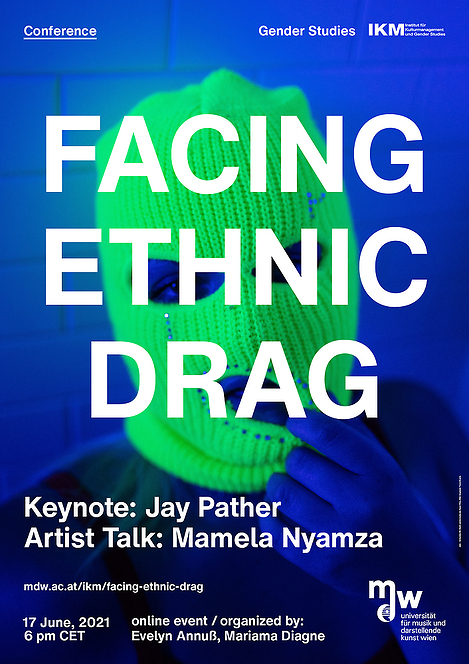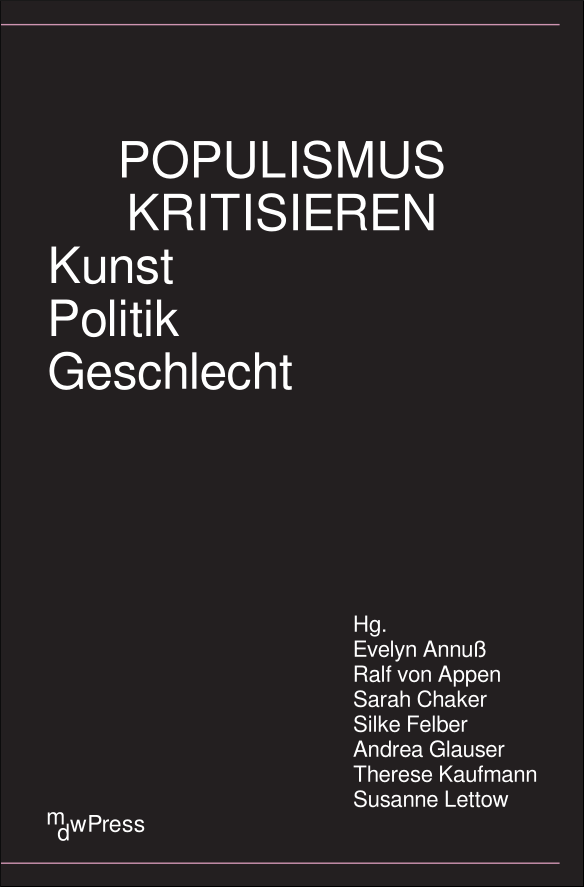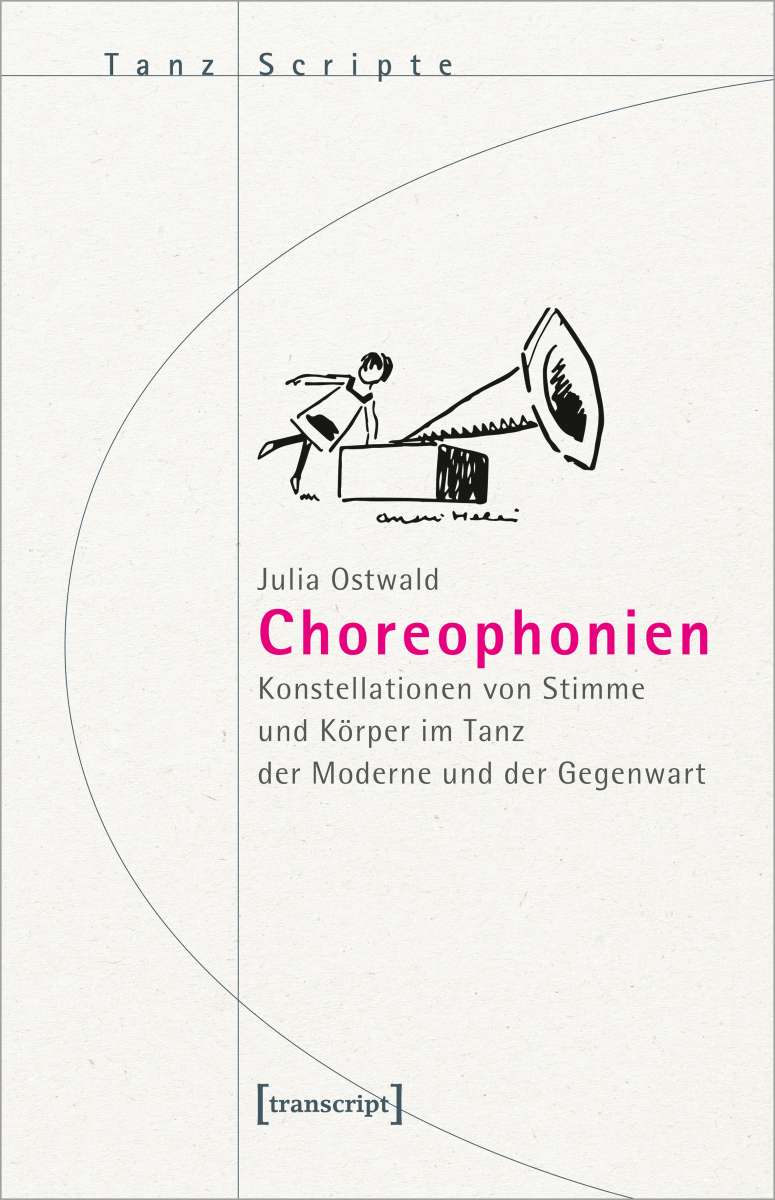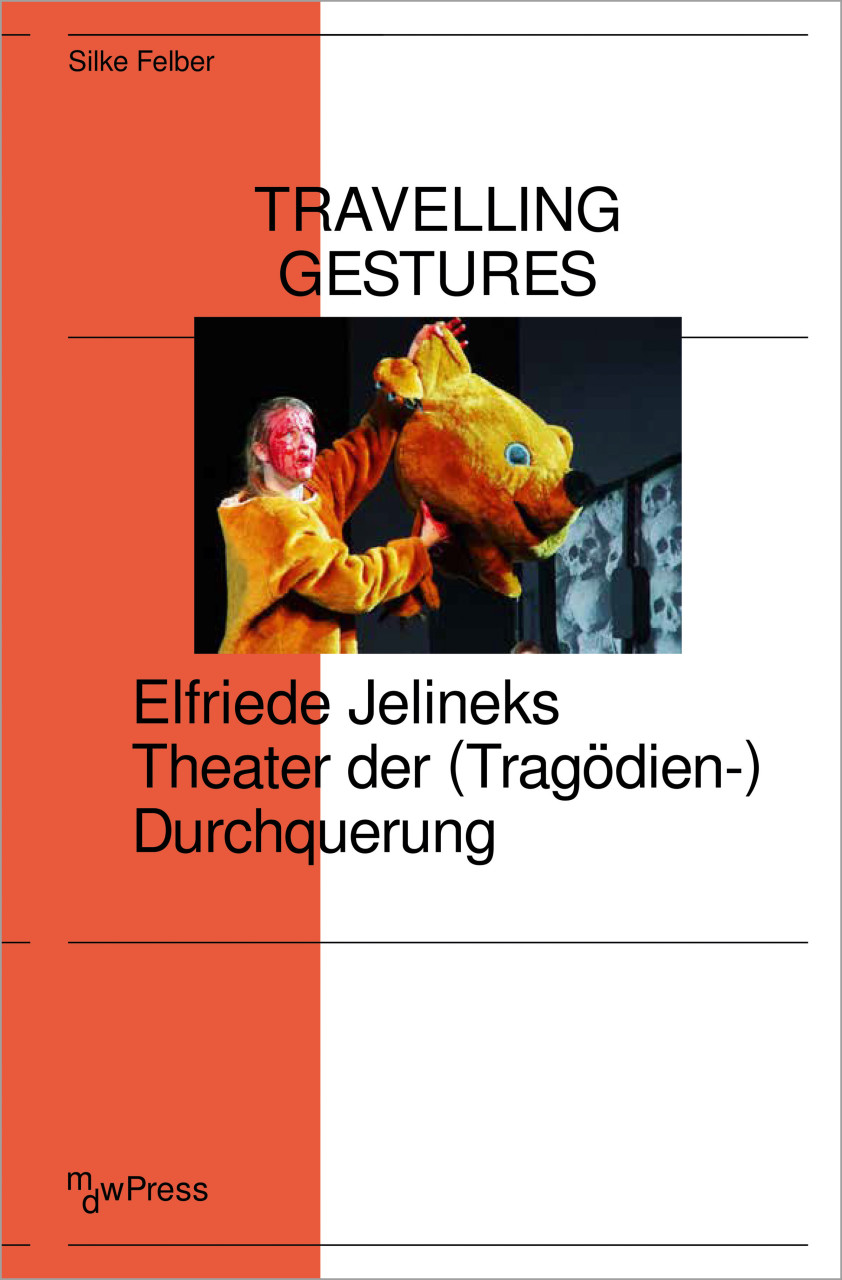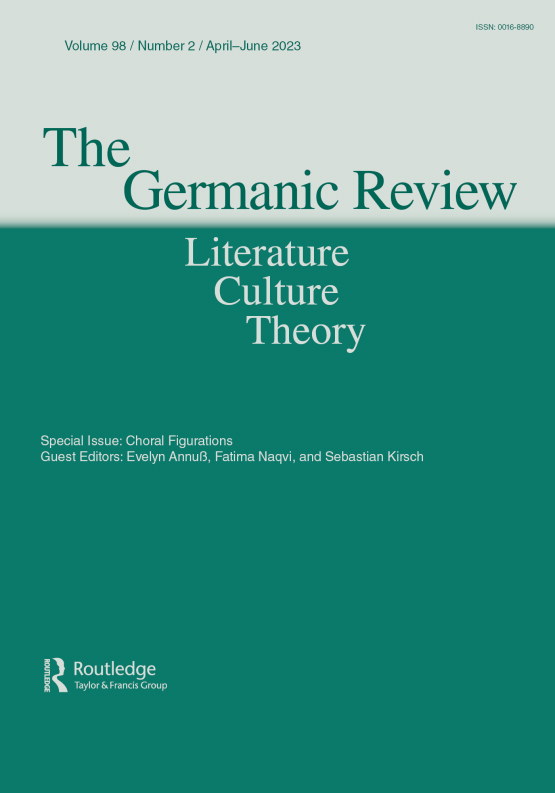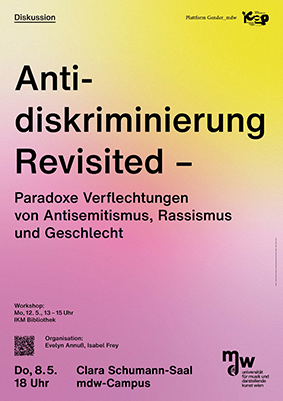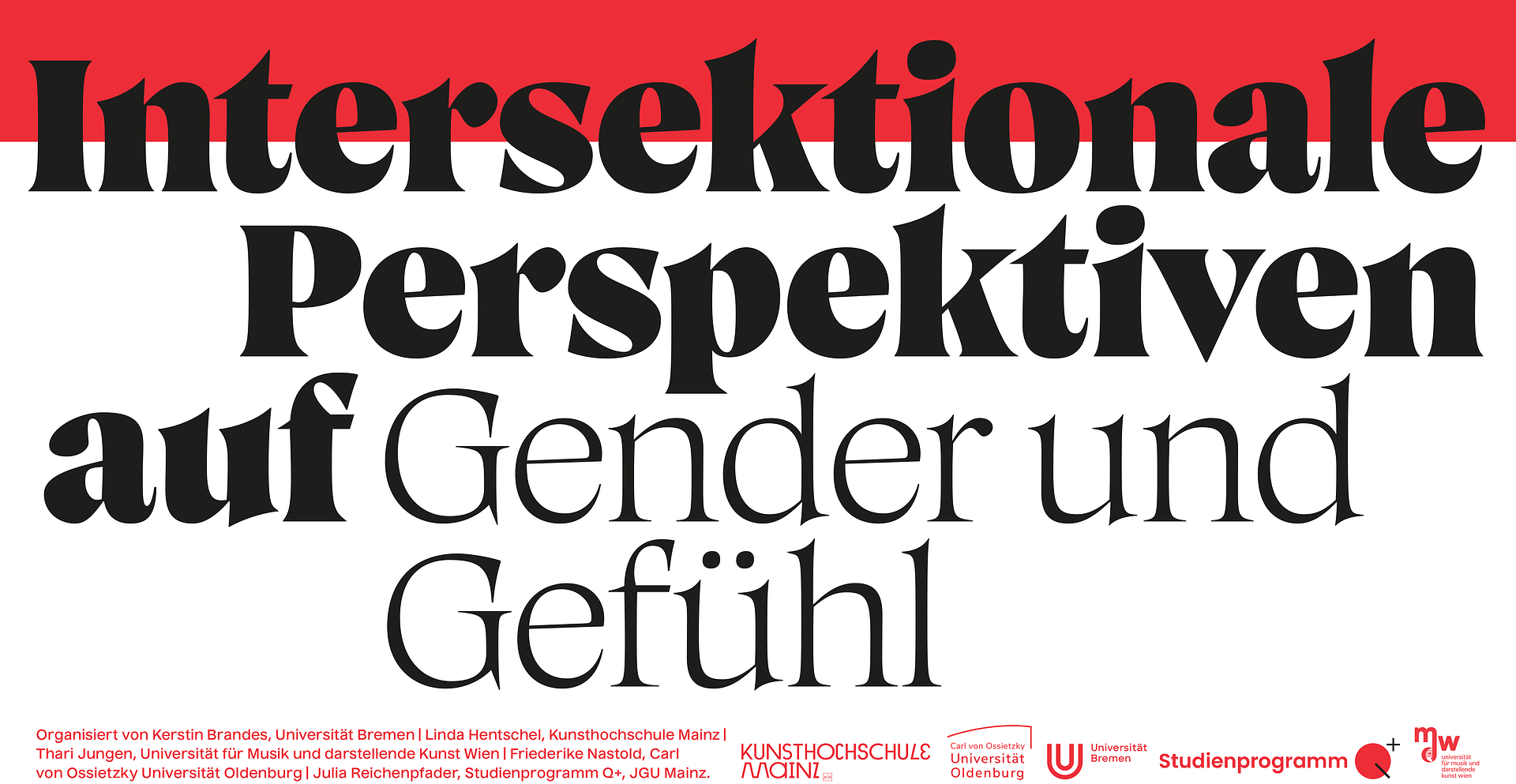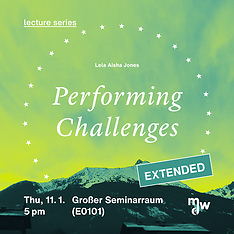Das International Research Center – Gender and Performativity (ICGP) ist eine kultur- /geisteswissenschaftliche mdw-Einrichtung für disziplinenübergreifende Geschlechterforschung und -lehre an der Schnittstelle zu Performance-, Theater-, Film-, Medienkultur- und Musikwissenschaft. Unsere Schwerpunkte liegen in den Bereichen performative Künste, politische Auftrittsformen und Performativitätstheorien. Angesiedelt unter dem Dach des Instituts für Kulturmanagement und Genderstudies (IKM), arbeiten wir an der globalen Vernetzung kritischer Ansätze der Gender, Queer und Trans Studies und untersuchen historisch, geografisch und institutionell unterschiedlich situierte Inszenierungen von Geschlecht und Begehren.
Wir freuen uns auf die gemeinsame Diskussion in unseren Veranstaltungsreihen sowie in Lehrveranstaltungen, die auch Studierenden anderer Universitäten offenstehen. Als einzige Kunstuniversität in Österreich bietet das ICGP die Möglichkeit, an der mdw in den Gender Studies mit entsprechendem Profil zu promovieren. Forschende, die sich für unsere Arbeit interessieren, sind herzlich eingeladen, uns zu kontaktieren. Gerne beraten wir bezüglich möglicher Ansiedlungen von Projekten am ICGP und unterstützen nach Möglichkeit bei der Antragstellung sowie – bei erfolgreicher Einwerbung von Drittmittelprojekten – auch infrastrukturell (Räume, Publikationsförderung etc.).
 12. - 14. Juni 2025 ICGP Opening
12. - 14. Juni 2025 ICGP Opening
 12. - 14. Juni 2025 ICGP Opening
12. - 14. Juni 2025 ICGP Opening
 12. - 14. Juni 2025 ICGP Opening
12. - 14. Juni 2025 ICGP Opening
 12. - 14. Juni 2025 ICGP Opening
12. - 14. Juni 2025 ICGP Opening
 12. - 14. Juni 2025 ICGP Opening
12. - 14. Juni 2025 ICGP Opening
 12. - 14. Juni 2025 ICGP Opening
12. - 14. Juni 2025 ICGP Opening
 12. - 14. Juni 2025 ICGP Opening
12. - 14. Juni 2025 ICGP Opening
 12. - 14. Juni 2025 ICGP Opening
12. - 14. Juni 2025 ICGP Opening
 12. - 14. Juni 2025 ICGP Opening
12. - 14. Juni 2025 ICGP Opening
 12. - 14. Juni 2025 ICGP Opening
12. - 14. Juni 2025 ICGP Opening
 12. - 14. Juni 2025 ICGP Opening
12. - 14. Juni 2025 ICGP Opening
 12. - 14. Juni 2025 ICGP Opening
12. - 14. Juni 2025 ICGP Opening
 12. - 14. Juni 2025 ICGP Opening
12. - 14. Juni 2025 ICGP Opening
 12. - 14. Juni 2025 ICGP Opening
12. - 14. Juni 2025 ICGP Opening

News
